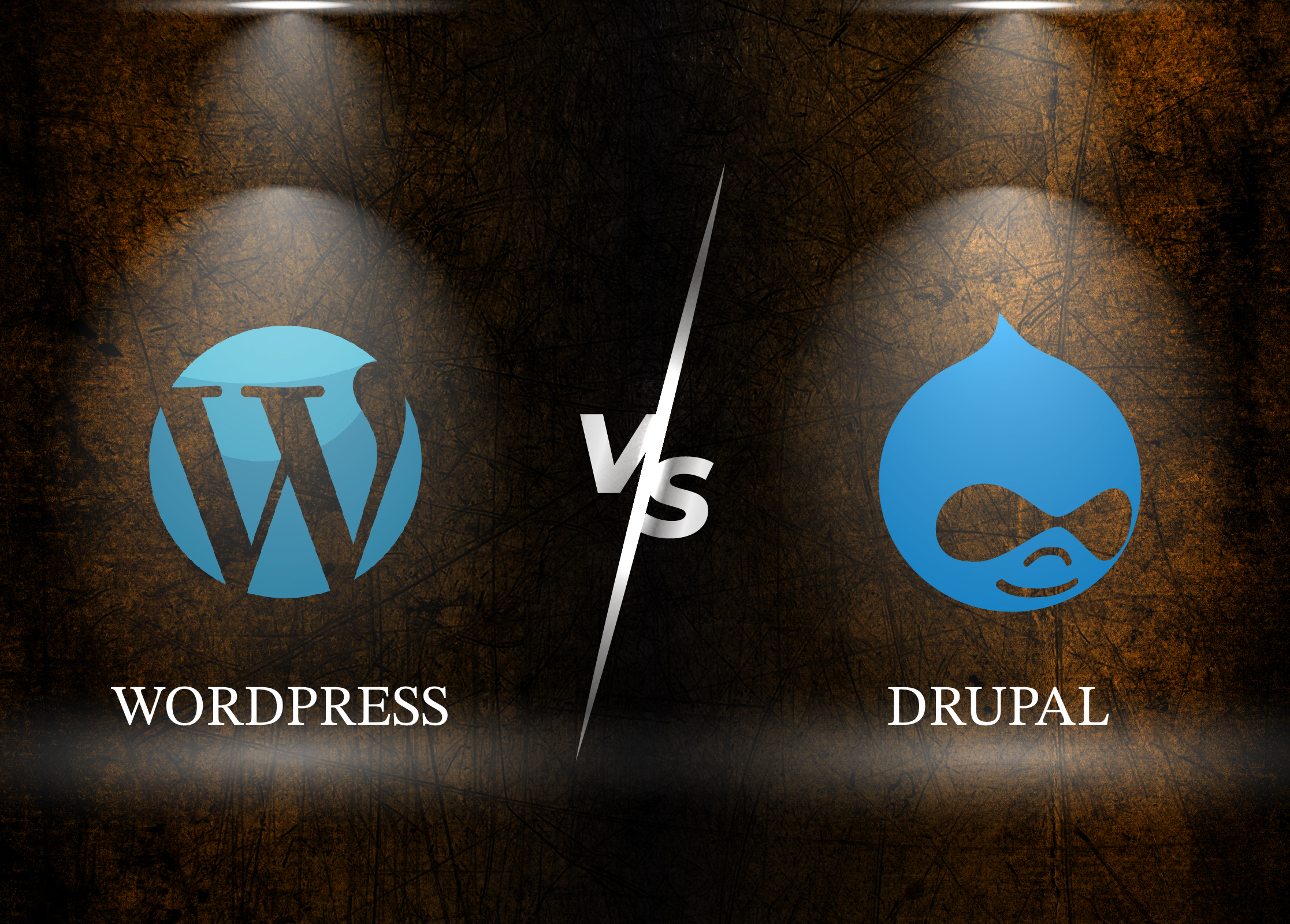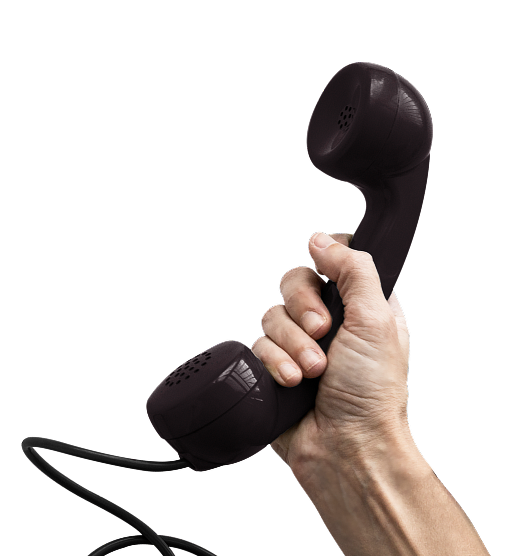Blogs
The choice of a CMS (content management system) is crucial for building your website. Among the most popular options, WordPress and Drupal stand out for their features and flexibility. But which one is best suited to your needs? In this article, we compare these two platforms to help you make the choice that will drive your web project forward.
1. Introduction to WordPress and Drupal
WordPress: The most popular CMS
Launched in 2003, WordPress has become the most widely used CMS in the world, thanks to its ease of use, flexibility, and vast ecosystem of themes and plugins. It allows you to create a wide variety of websites: blogs, showcase sites, portfolios, and even e-commerce stores.
WordPress is appreciated by both beginners and experienced developers. It offers quick and easy handling while allowing a high level of customization for those who want to go further. Even high-traffic businesses adopt it because of its stability, modularity, and affordable cost.
Why choose WordPress?
- Intuitive interface, ideal for non-technical users
- Extensive library of themes and plugins
- Compatible with best SEO practices
- Suitable for projects of any size
- Large community and extensive documentation
WordPress.com or WordPress.org: Which version to choose?
There are two versions :
- WordPress.com : A hosted solution, limited in customization
- WordPress.org : The self-hosted version, most commonly used by professionals
👉 This article focuses on WordPress.org, as it allows full control over your website: design, plugins, SEO, security, hosting… It is the version to prioritize for any serious and scalable project.
Drupal : A more technical and flexible CMS
Created in 2001, Drupal is an open-source CMS particularly suited for complex websites. It stands out for its modular structure and flexibility, allowing advanced customization. Unlike WordPress, Drupal has a steeper learning curve, making it better suited for users with existing technical skills.
Why choose Drupal ?
- Granular content and permissions management
- High level of security
- Excellent performance for large-scale projects
- Ideal for multilingual or highly structured websites
Although less widely used than WordPress, Drupal remains a robust solution for businesses, institutions, or organizations seeking a complex architecture, advanced management system, and high stability.
2. Ease of use and onboarding of both CMS platforms
When it comes to choosing a CMS, ease of use is a crucial criterion, especially for beginners. Comparing WordPress and Drupal, these two popular solutions offer distinct features in terms of user-friendliness. In this section, we will explore the differences between these two CMS platforms regarding ease of use, content management, and customization.
WordPress: An intuitive interface for everyone
WordPress stands out for its ease of use. Designed for both beginners and professionals, it offers a clear and intuitive interface. The dashboard is easy to navigate, with a sidebar that provides quick access to key features: content creation, user management, general settings, site customization, and much more.
Key strengths of WordPress’s ease of use :
- User-friendly interface : WordPress’s graphical interface is designed to be accessible, even without technical skills. Users can easily create and manage content using the Gutenberg editor, which operates with a visual block system, making it simple to add text, images, and other multimedia elements.
- Easy customization : WordPress offers a large library of themes and plugins to personalize your site without touching the code.
- Documentation and support : WordPress’s vast community and comprehensive documentation make learning and troubleshooting easy.
Thanks to this simplicity, WordPress remains the preferred choice for beginners or those who want to create a website quickly and efficiently.
Drupal : A powerful CMS for advanced users
In comparison, Drupal is more geared toward experienced users and web developers. While it offers impressive flexibility for creating complex websites, its learning curve is steeper than WordPress, mainly due to its less intuitive dashboard and more advanced configuration.
Key strengths of Drupal’s ease of use :
- Advanced flexibility and customization : Drupal allows the creation of tailor-made websites suited to complex needs. Users can structure and organize content using specific content types and taxonomies.
- Powerful modules: Drupal relies on modules to extend its functionality. Each module can be configured to meet specific requirements, making it ideal for projects that need extensive customization.
- Security and performance: Advanced users will value Drupal’s enhanced security features and scalability for high-traffic websites.
However, this flexibility and power come with a steeper learning curve, making Drupal better suited for users who already have a solid understanding of content management systems and development skills.
Whether you choose WordPress or Drupal for your project, the Majjane team is here to support you in creating your customized website. Discover our website creation services.
3. Customization and flexibility
Customization and flexibility are key criteria when choosing WordPress or any CMS. Depending on the nature of the project, you may need a simple site that’s easy to personalize or, conversely, a robust solution for a more complex site with specific features. In this section, we will compare the customization and flexibility of WordPress and Drupal to help you determine which CMS best meets your needs.
WordPress is known for its ease of customization, even without web development skills. Thanks to its rich ecosystem of themes and plugins, you can quickly tailor your site to your specific needs, whether it’s a personal blog or a business website. Here are a few points to consider :
- WordPress Themes and Plugins
Themes : WordPress offers thousands of free and premium themes that allow you to change your site’s appearance in just a few clicks. Whether you want a minimalist design or a visually sophisticated site, you will find a wide range of options.
Plugins : One of WordPress’s major advantages is the sheer number of available plugins. You can add almost any functionality imaginable to your site, such as SEO tools (e.g., Yoast SEO), contact forms (like Contact Form 7), image galleries, or e-commerce solutions (like WooCommerce).
👉 Discover our WordPress website creation service for a fast and customizable solution, even without technical skills.
- No-code customization
WordPress customization often requires no coding. The visual Gutenberg editor, introduced recently, allows you to add and organize content blocks intuitively. You can also modify colors, fonts, and the layout of elements using the built-in customization tool.
- Limited flexibility for complex websites
Although WordPress is flexible, its customization reaches its limits for highly complex sites or specific technical requirements.
In contrast, Drupal stands out for its flexibility and advanced customization capabilities. However, this flexibility comes at a cost: it requires technical expertise to fully leverage its features. Here’s how Drupal performs in terms of customization :
- Advanced customization
Drupal allows you to customize content structure in a highly detailed way. With content types and taxonomies, you can create complex, hierarchical content structures tailored to your specific needs.
Content types : You can create custom content types for each page or article on your site, with unique fields (text, images, files, etc.).
Taxonomies : Drupal allows you to organize content using custom taxonomies, making it easier to manage complex data.
- Requires technical skills
Although Drupal offers maximum flexibility, it is necessary to understand the CMS structure and have web development skills to take full advantage of it. The learning curve is steeper, and the management interface can seem complex for those unfamiliar with CMS platforms.
In short, WordPress is ideal if you’re looking for quick and easy customization. Its wide range of themes and plugins allows you to easily tailor your site without technical skills.
Drupal, on the other hand, offers maximum flexibility for complex websites, providing full control over the site’s structure and features. However, this flexibility requires technical skills and a deeper understanding of content management.
4. SEO, Performance, and Security
- SEO with WordPress: Easy optimization
WordPress is known for its SEO-friendly features. Thanks to its ecosystem of SEO plugins, it is relatively easy to configure a site to rank well on Google and other search engines.
SEO plugins such as Yoast SEO, Rank Math, or All in One SEO are powerful tools for optimizing a WordPress site. These plugins offer a range of features to improve your site’s SEO :
Meta tag optimization (title and description)
Automatically generated XML sitemap
URL optimization and redirect management
SEO content analysis with improvement suggestions
Image optimization with ALT tag management
- Site structure and SEO
WordPress also provides a solid site structure for SEO. Its permalink system allows you to customize the URLs of your pages and posts to make them search-engine friendly.
Additionally, WordPress offers simplified internal link management through categories and tags, enabling well-organized content.
- SEO with Drupal: Flexibility and advanced control
Drupal, although more technical, also offers numerous SEO optimization options, providing more detailed control over every aspect of the site.
SEO modules for Drupal
Drupal does not have an all-in-one plugin as popular as those on WordPress, but it offers several powerful SEO modules. Some of the most commonly used include :
Pathauto : to automatically generate SEO-friendly URLs.
Metatag : to customize the meta tags for each page.
XML Sitemap : To generate an XML sitemap.
Redirect : to manage 301 redirects and prevent 404 errors.
These modules provide advanced control over SEO configuration, but using them requires a certain level of technical expertise.
As mentioned earlier, Drupal excels in content structuring. Its flexibility with content types and taxonomies allows you to create a highly organized site for SEO, making it easier for search engines to index.
- Performance : WordPress vs Drupal
Website performance is a crucial factor for both user experience and SEO. A fast-loading site is more likely to rank well in search results, and users will have a better overall experience.
WordPress Performance
WordPress is easy to use, but performance can sometimes be affected by using too many plugins, poorly optimized themes, or uncompressed images.
Caching : Using plugins like W3 Total Cache or WP Super Cache can boost performance by caching static pages and reducing server requests.
Image optimization : Plugins like Smush or Imagify allow you to compress images without quality loss, thereby reducing loading times.
Optimized hosting : Choosing the right web hosting (e.g., dedicated WordPress hosting) has a major impact on a WordPress site’s performance.
Drupal Performance
Drupal is known for its inherent performance when properly configured. It is often faster than WordPress for sites with large volumes of content or complex structures, thanks to its better native database management.
Caching : Drupal has a powerful native caching system, which improves page load speeds even without third-party plugins.
Query optimization : Thanks to its flexible and modular structure, Drupal can optimize its queries for faster response times.
Image and content optimization : Drupal allows precise management of image compression and external resources.
- Security : Enhanced protection with Drupal and WordPress
Security is a crucial aspect when choosing a CMS. Both platforms offer solutions to protect your site against attacks, but they differ in how they handle vulnerabilities and updates.
WordPress Security
As the most widely used platform in the world, WordPress is often targeted by cyberattacks. However, several security measures can be implemented to protect a WordPress site :
Regular updates : One of the best ways to secure a WordPress site is to keep the CMS core, themes, and plugins up to date.
Security plugins : Plugins like Wordfence Security or iThemes Security provide advanced protection features, such as malware detection, firewalls, brute force prevention, and more.
Regular backups : Use plugins like UpdraftPlus to perform regular backups.
However, due to its wide range of third-party plugins, some may contain security vulnerabilities.
- Drupal Security
Drupal is known for its strong security. It is often preferred by government agencies and large enterprises due to its strict management of user roles and content access.
Security updates : Drupal releases regular security updates and has a dedicated team for managing vulnerabilities.
Security modules : Modules like Security Kit or Login Security help strengthen site security.
Access control : User roles and permissions management in Drupal is more granular and advanced, allowing you to restrict access to specific parts of the site.
5. Cost of Both CMS Platforms
Cost of WordPress
- Hosting : From €3 to €50 per month, depending on the option chosen (shared or VPS/dedicated).
- Domain name: Around €10 to €15 per year.
- Plugins and themes: Most plugins and themes are free, but some premium ones cost between €30 and €100 per year.
- Development: A simple WordPress site can cost between €500 and €5,000, depending on the complexity.
Cost of Drupal
- Hosting: From €15 to €100 per month (VPS or dedicated recommended for better performance).
- Domain name: Like WordPress, around €10 to €15 per year.
- Modules and themes: Free for the most part, but some premium modules can cost between €50 and €500 per year.
- Development: Developing a Drupal site is generally more expensive, ranging from €2,000 to €10,000 depending on the specifications.
6. What types of sites can be created with WordPress or Drupal?
The choice between WordPress and Drupal largely depends on the type of site you want to create. Each CMS is suited to specific needs. Here is a comparison to help you determine which CMS will best fit your project.
WordPress is the ideal option for the following types of sites :
- Blogs : Ease of use, with an excellent content editor for publishing articles easily.
- Showcase websites : Ideal for small businesses that want to showcase their services online.
- E-commerce websites (via WooCommerce) : Perfect for small to medium-sized online stores.
- Portfolios : Easy integration of galleries and portfolio pages for creatives.
- Community websites : With plugins like BuddyPress, it’s easy to create forums or simple social networks.
In summary, WordPress is suitable for small to medium-sized projects, where simplicity and quick setup are essential criteria.
On the other hand, Drupal excels in creating more complex sites or those requiring advanced customization. It is perfectly suited for :
- Institutional or government websites : With advanced security and robust user management.
- Large enterprise websites : Complex features, advanced content management, and integration with third-party systems.
- News or publication websites : If you need to manage a large volume of structured content, Drupal is an excellent choice.
- Advanced community websites : Drupal offers more powerful member management, forums, and custom content features.
- Complex e-commerce websites (via Drupal Commerce) : For online stores with specific requirements regarding products, payments, and third-party integrations.
Drupal is therefore recommended for large and complex projects, where custom features and advanced content management are necessary.
7. WordPress or Drupal: Which one to choose for your project?
After exploring the various aspects of WordPress and Drupal, you are probably wondering which of these two CMSs is best suited to your needs. Here is a summary table that allows you to visualize the main differences between these two solutions, helping you make the best choice for your project.
| Criterion | WordPress | Drupal |
| Ease of use | Very intuitive, ideal for beginners. Simple and accessible interface. | More complex, longer learning curve, but more powerful. |
| Flexibility | Flexible, but limited by the available themes and plugins. | Very flexible, ideal for customized and complex sites. |
| Security | Secure but requires regular updates. | Highly secure, suitable for sites requiring high levels of security. |
| Performances | Good performance with the right plugins and optimization. | Excellent performance, better suited for high-traffic sites. |
| Cost | Less expensive, with many free themes and plugins. | More expensive in terms of development and maintenance. |
| Community support | Very large community, with numerous forums and resources. | Smaller, but very active for advanced developers. |
| SEO | Very good, with plugins like Yoast SEO. | Good, but requires technical skills for optimization. |
| Content management | Easy to manage with a visual editor (Gutenberg). | More technical, with powerful tools for advanced users. |
| Suitable types of sites | Blogs, small businesses, portfolios, e-commerce sites. | Complex sites, large enterprises, government institutions. |
| Initial setup | Quick installation, often in one click. | More complex installation, requiring more time and expertise. |
In summary, the choice between WordPress and Drupal depends primarily on the nature of your project, your technical skills, and your long-term goals. To learn more, explore our specialized services in WordPress site creation or Drupal development.
Recent Articles

Lead Generation: A Complete Guide to Attract Customers
In an increasingly competitive digital environment, attracting the attention of potential customers is no longer...

How much does a mobile application cost?
Developing a mobile application is a crucial investment for businesses looking to go digital and...

Majjane x Vesense at GITEX AFRICA 2025: Meet Your Future Digital Agency in Marrakech!
From April 14 to 16, 2025, Majjane, a leading Moroccan web and mobile agency, will...

